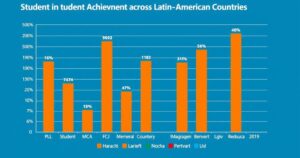Revisiting the Dark Legacy: Dutch Scholarship on the Indonesian War of Independence
In the Netherlands, new academic scrutiny of the 1945-1949 Indonesian war of independence has arisen, focusing on documented war crimes and the repercussions of colonial legacy. Key works by Rémy Limpach and Alfred Birney investigate systemic violence during this period, revealing estimated casualty figures and personal narratives that reflect deeply-rooted historical trauma. This scholarly pursuit aims to reconcile the past with contemporary Dutch identity and values.
In the Netherlands, scholars are revisiting the 1945-1949 Indonesian war of independence, spurred by changes in public sentiment and new historical inquiries. This retrospective examination, aimed at confronting the lingering impacts of Dutch colonialism, showcases a growing willingness among institutions to reassess previously accepted narratives. While Dutch introspection regarding its imperial past has progressed slowly, significant developments in documenting war crimes following 2011 court cases have shed light upon a darker chapter in history. Recent studies reveal staggering death tolls, estimating over 97,000 Indonesian lives lost as a result of the conflict.
Rémy Limpach’s comprehensive research contrasts sharply with earlier analyses, placing systemic violence at the heart of Dutch military conduct in Indonesia. His work utilizes the terms ‘mass violence’ and ‘extreme violence’ rather than the euphemism of ‘excesses’ previously employed in government reports. Throughout his book, Limpach meticulously explores the brutal realities of the conflict, including the notorious Bersiap period. This era was characterized by rampant violence among multiple factions, including Dutch forces and the local population.
Alfred Birney’s novel “De Tolk van Java” provides a poignant personal narrative that complements Limpach’s academic findings. Birney chronicles the entwined lives of characters influenced by post-colonial trauma, offering an emotional exploration of how violence shaped identities and family dynamics. Together, these works confront the complexities of colonial legacy and its present ramifications on Dutch society, encapsulating the process of grappling with a painful historical narrative in pursuit of reconciliation.
In summary, both Limpach and Birney contribute to a critical understanding of the Netherlands’ colonial past by highlighting the veiled atrocities of the Indonesian war. Their combined efforts underscore a unique moment in Dutch historiography, suggesting that confronting this violent history may lead to a more profound collective understanding of national identity and historical responsibility.
The article discusses the ongoing debate and research surrounding the Netherlands’ colonial history, specifically the Indonesian war of independence from 1945 to 1949. This period has long been obscured by a lack of open discourse regarding the brutality of Dutch military actions and their lasting effects on both Indonesian and Dutch societies. The emerging scholarship, including two pivotal Dutch-language books, reflects a critical reevaluation that has been prompted by legal and cultural shifts within the Netherlands. This reconsideration is essential for reconciling the country’s colonial past with contemporary societal dynamics and identity.
The examination of the Netherlands’ colonial history, especially during the Indonesian war of independence, reveals significant truths about systemic violence and its implications on both Indonesian and Dutch identities. The scholarly works of Rémy Limpach and Alfred Birney serve to illuminate and articulate the painful legacies of colonialism. Their narratives emphasize the necessity for societal introspection and acknowledgment of past atrocities, fostering a dialogue that may aid in national reconciliation and understanding.
Original Source: www.insideindonesia.org





